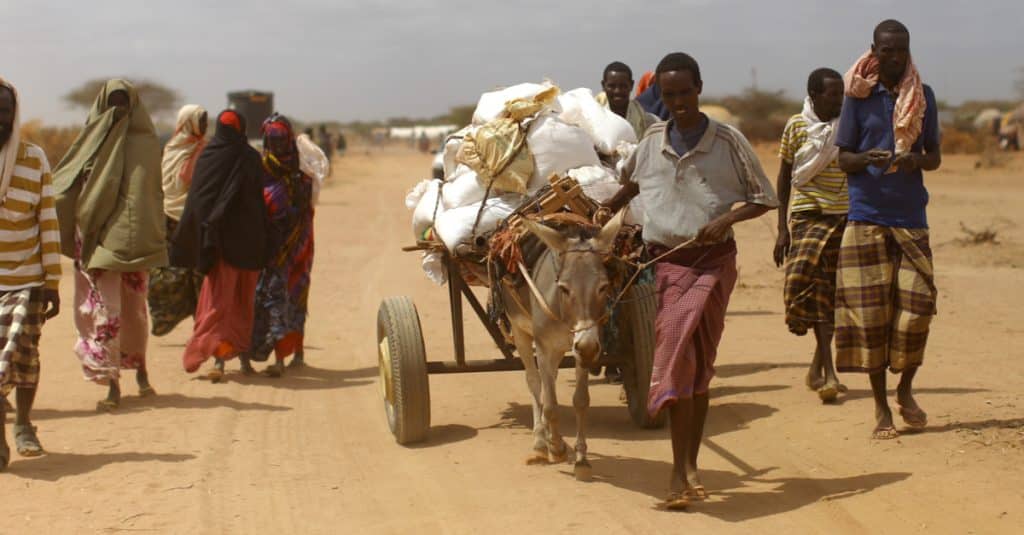Because of the consequences of climate disruption, Africa will be the scene of the world’s major humanitarian crises in 2024. In its analysis of the 20 countries in the world where the humanitarian situation could deteriorate further in 2024, the American non-governmental organisation (NGO) International Rescue Committee (IRC) notes that 11 of these countries are in Africa. They include Mali, Niger, Burkina Faso, Mozambique, Nigeria, the Central African Republic (CAR), the Democratic Republic of Congo (DRC), Sudan, South Sudan, Ethiopia and Somalia.
For the United Nations Children’s Fund (Unicef), the number of African countries to be closely monitored in 2024 goes beyond 11. Of the 26 countries for which Unicef is requesting the mobilisation of 46.4 billion dollars in international aid this year, fourteen are on the continent. The biggest crises are concentrated in three countries: Ethiopia, Sudan and the DRC, where the population affected varies between 20 million and 26 million, depending on the country.
The consequences of climate change
This concentration of global humanitarian crises in Africa also has a climatic origin. Here, most humanitarian crises arise from vulnerability to the effects of climate change and armed conflict. “They are increasingly occurring in the same regions and at the same time. More than half the conflicts that have broken out since 1995 have occurred in the countries most exposed to global warming and least able to adapt to it”, explains the IRC.
Read also-AFRICA: According to the UNDP, climate change is exacerbating violence
In a report presented on 24 May 2023 in Geneva, Switzerland, the United Nations Development Programme (UNDP) establishes a causal link between climate change and the rise in armed conflicts in Africa. The report, entitled “On the Road to Extremism in Africa: Pathways to Recruitment and Disengagement”, identifies the causes of the explosion in the activities of non-state armed groups, and points the finger at the climate crisis as a catalyst for the escalation of violence on the continent.
Boris Ngounou
